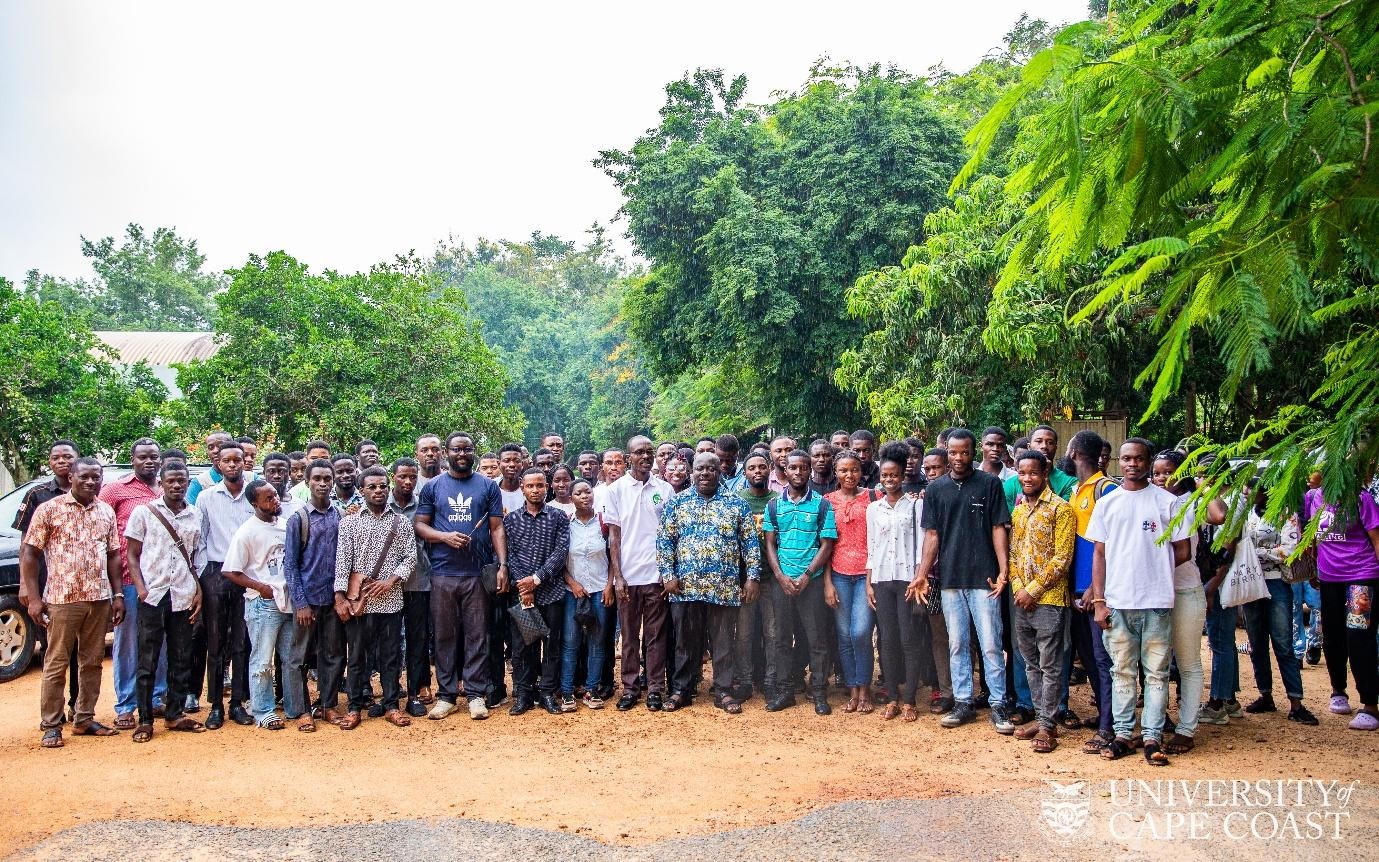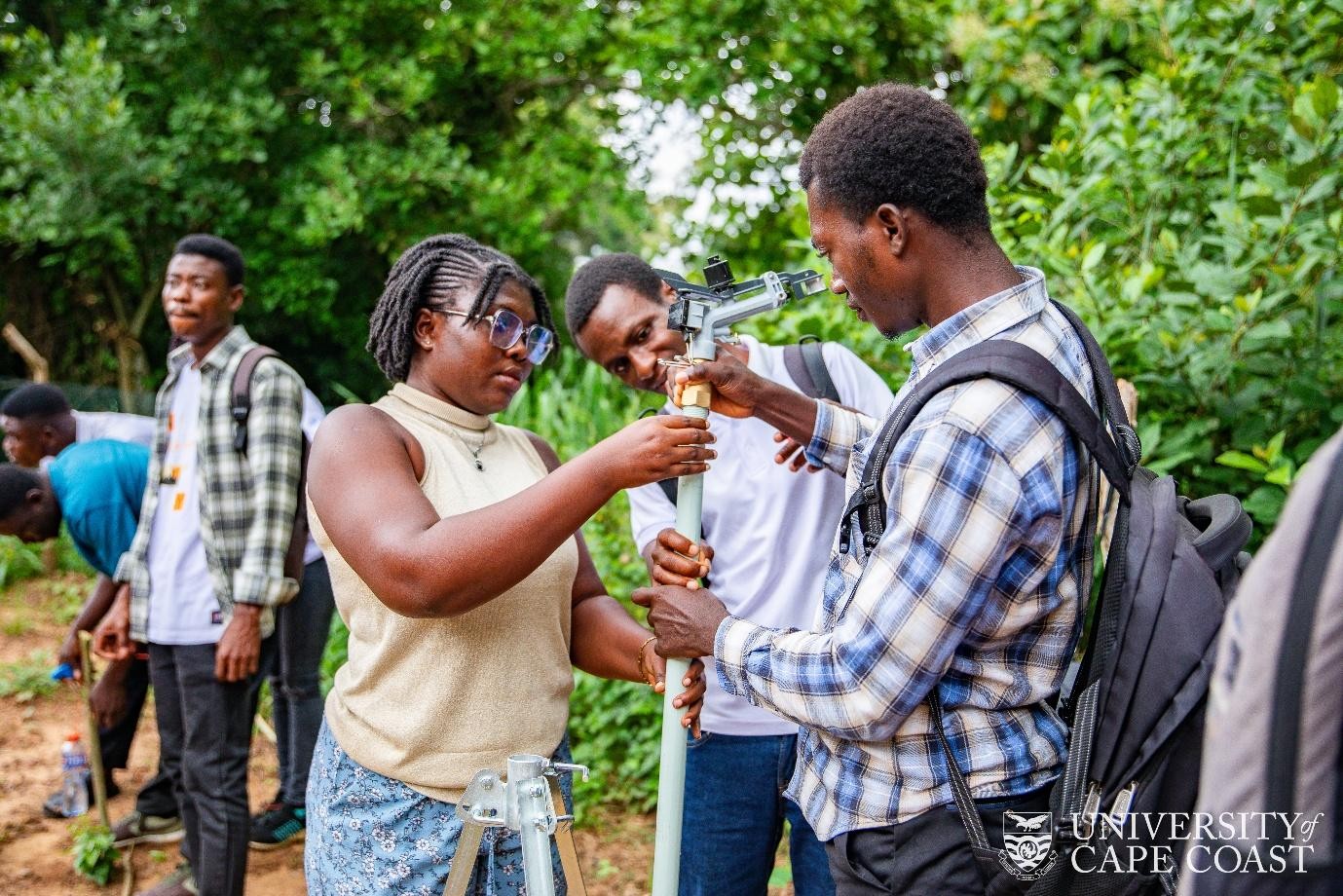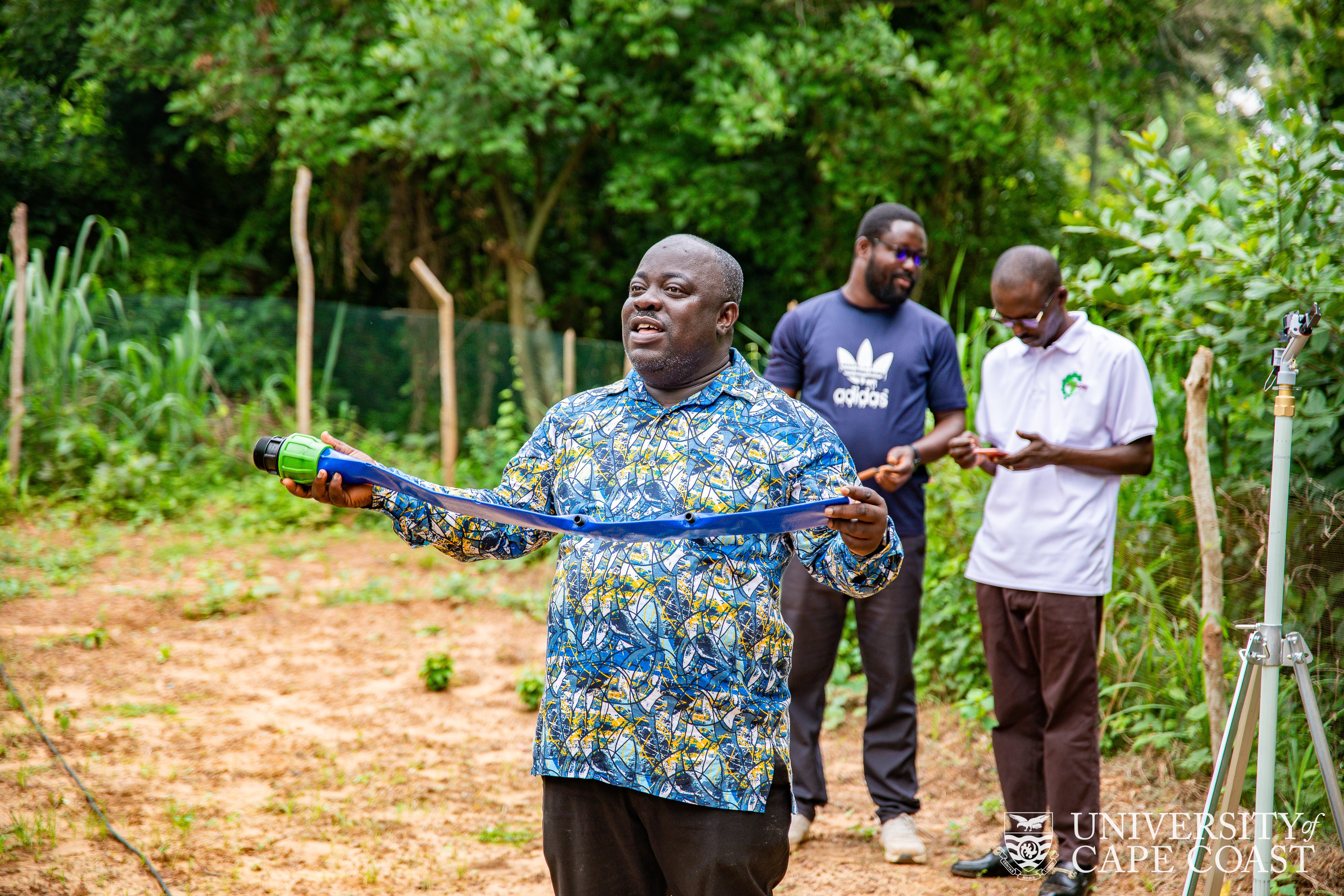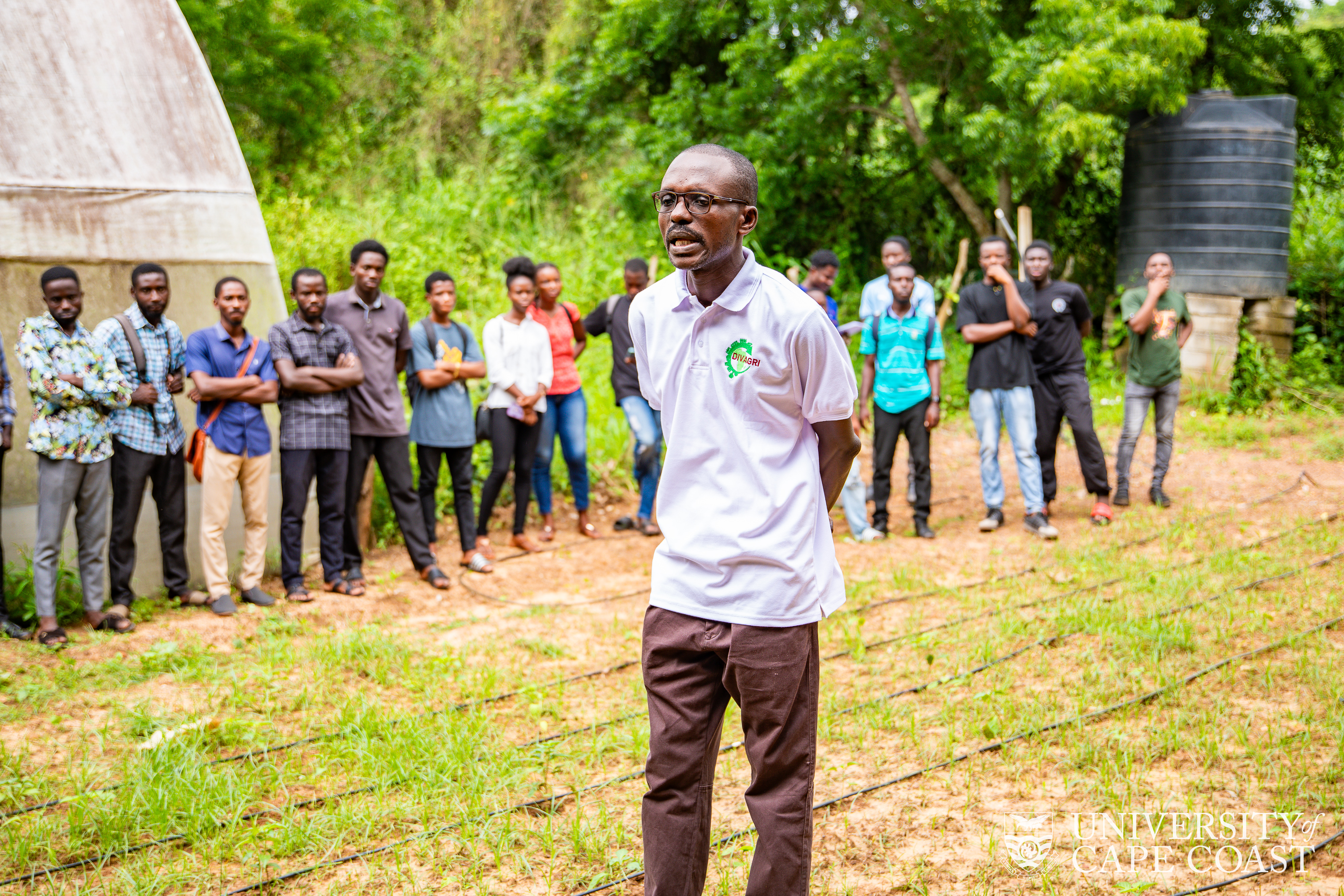Final-year students of the Department of Agricultural Engineering have participated in a hands-on training session on modern irrigation systems.
This was meant to equip the students with practical knowledge to enable them to succeed in the world of work.
It was held by Revenue Diversification Pathways in Africa through its bio-based and circular agricultural Innovations (DIVAGRI) project, a consortium project that aims to increase the productivity, income, and economic opportunities of subsistence and smallholder farmers.
The students were taken through the operation and application of sprinkler systems, drip irrigation, and the Subsurface Self-Regulating, Low-Energy, Clay-Based Irrigation (SLECI system), a technology designed for resource-efficient water use in smallholder farming.
A key highlight of the session was a demonstration on the use of recycled wastewater bottles for irrigation: an affordable, sustainable method suited for urban gardening and home-based agriculture.
Students during the practical session
This innovation aligned with DIVAGRI’s goals of promoting climate-smart, low-cost agricultural technologies that improve water efficiency and enhance resilience among smallholder farmers.
The training, led by a renowned soil and water conservation engineering expert, Prof. Ransford Opoku Darko, focused on equipping students with practical skills and technical insights into various irrigation methods and technologies.
Prof. Ransford Opoku Darko explaining a point during the practical session
Speaking at the event, the Principal Investigator, Ing. Dr Francis Kumi, emphasized the importance of practical training in bridging the gap between theory and real-world application, especially in a climate-vulnerable region like sub-Saharan Africa.
He encouraged students to adopt and promote innovative irrigation practices that conserve water while boosting productivity.
Ing. Dr Francis Kumi stressing a point during the session
The training marks a key milestone in the DIVAGRI project’s capacity-building efforts, which are aimed at empowering the next generation of agricultural professionals with the knowledge and tools to drive sustainable development in agriculture.
Source: Documentation and Information Section-UCC




